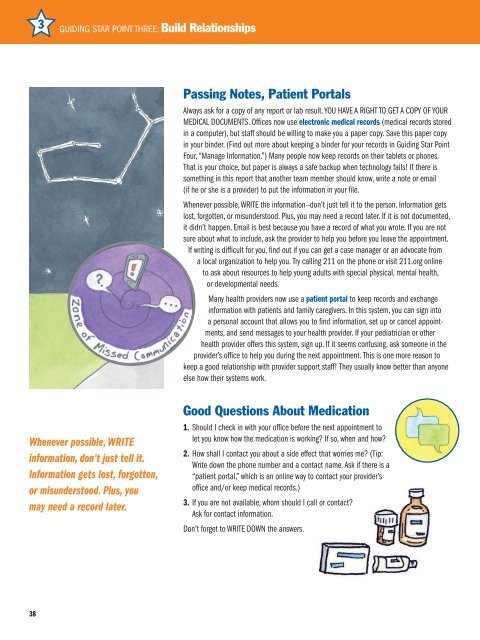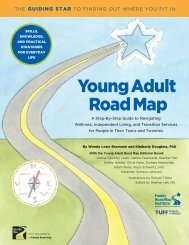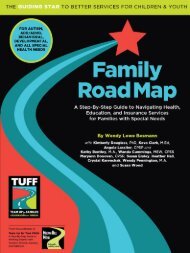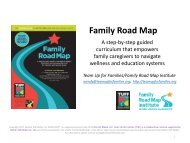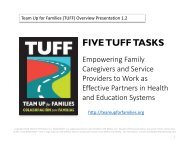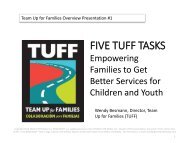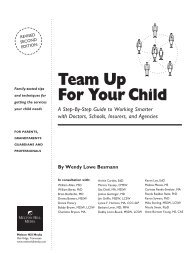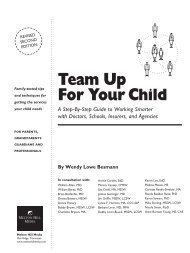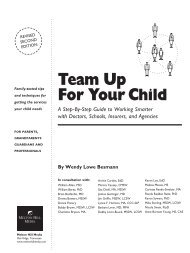Look Inside Young Adult Road Map
You also want an ePaper? Increase the reach of your titles
YUMPU automatically turns print PDFs into web optimized ePapers that Google loves.
3<br />
Guiding Star Point Three: Build Relationships<br />
Passing Notes, Patient Portals<br />
Always ask for a copy of any report or lab result. YOU HAVE A RIGHT TO GET A COPY OF YOUR<br />
MEDICAL DOCUMENTS. Offices now use electronic medical records (medical records stored<br />
in a computer), but staff should be willing to make you a paper copy. Save this paper copy<br />
in your binder. (Find out more about keeping a binder for your records in Guiding Star Point<br />
Four, “Manage Information.”) Many people now keep records on their tablets or phones.<br />
That is your choice, but paper is always a safe backup when technology fails! If there is<br />
something in this report that another team member should know, write a note or email<br />
(if he or she is a provider) to put the information in your file.<br />
Whenever possible, WRITE the information--don’t just tell it to the person. Information gets<br />
lost, forgotten, or misunderstood. Plus, you may need a record later. If it is not documented,<br />
it didn’t happen. Email is best because you have a record of what you wrote. If you are not<br />
sure about what to include, ask the provider to help you before you leave the appointment.<br />
If writing is difficult for you, find out if you can get a case manager or an advocate from<br />
a local organization to help you. Try calling 211 on the phone or visit 211.org online<br />
to ask about resources to help young adults with special physical, mental health,<br />
or developmental needs.<br />
Many health providers now use a patient portal to keep records and exchange<br />
information with patients and family caregivers. In this system, you can sign into<br />
a personal account that allows you to find information, set up or cancel appointments,<br />
and send messages to your health provider. If your pediatrician or other<br />
health provider offers this system, sign up. If it seems confusing, ask someone in the<br />
provider’s office to help you during the next appointment. This is one more reason to<br />
keep a good relationship with provider support staff! They usually know better than anyone<br />
else how their systems work.<br />
Whenever possible, WRITE<br />
information, don’t just tell it.<br />
Information gets lost, forgotten,<br />
or misunderstood. Plus, you<br />
may need a record later.<br />
Good Questions About Medication<br />
1. Should I check in with your office before the next appointment to<br />
let you know how the medication is working? If so, when and how?<br />
2. How shall I contact you about a side effect that worries me? (Tip:<br />
Write down the phone number and a contact name. Ask if there is a<br />
“patient portal,” which is an online way to contact your provider’s<br />
office and/or keep medical records.)<br />
3. If you are not available, whom should I call or contact?<br />
Ask for contact information.<br />
Don’t forget to WRITE DOWN the answers.<br />
38


